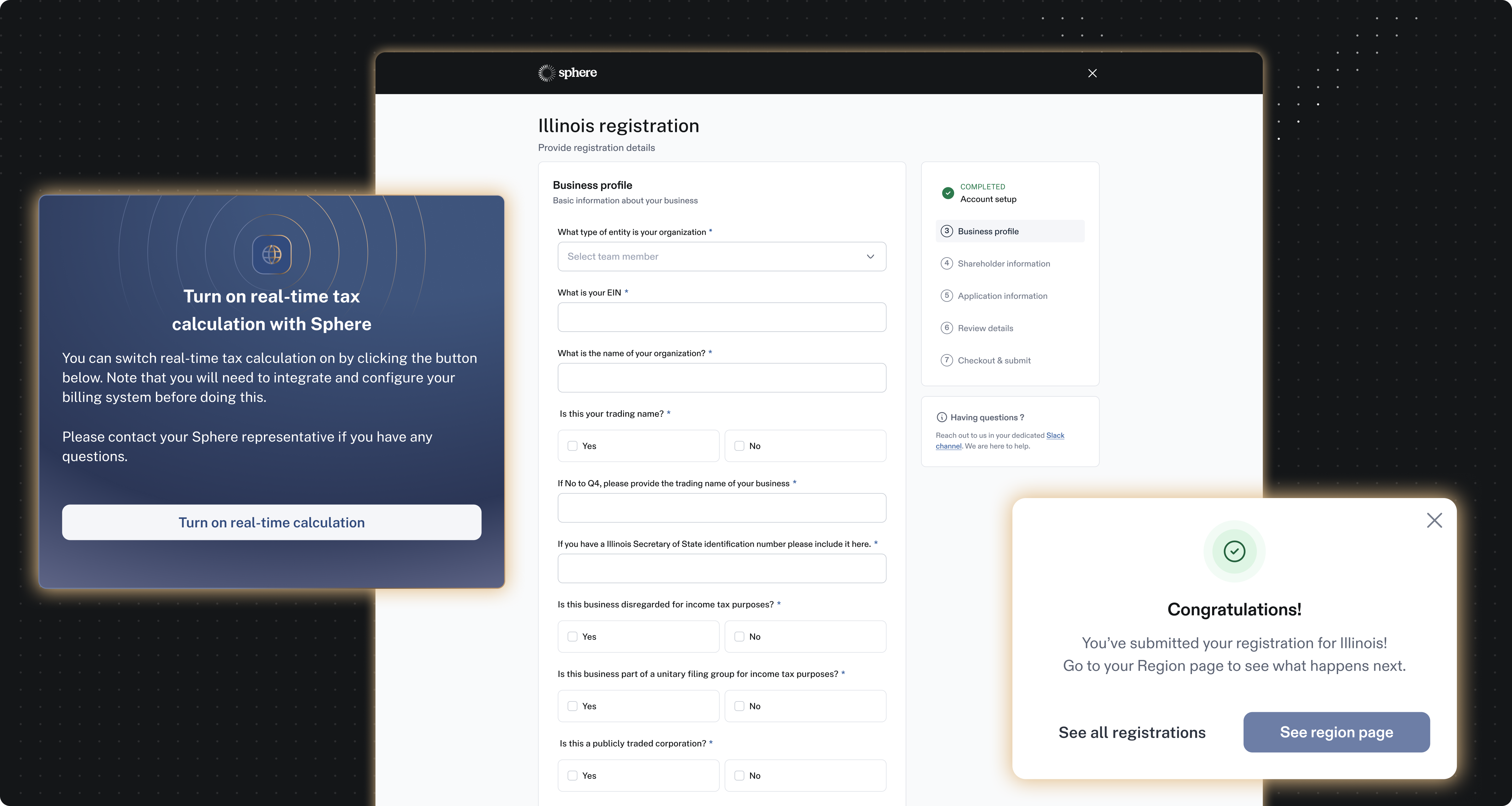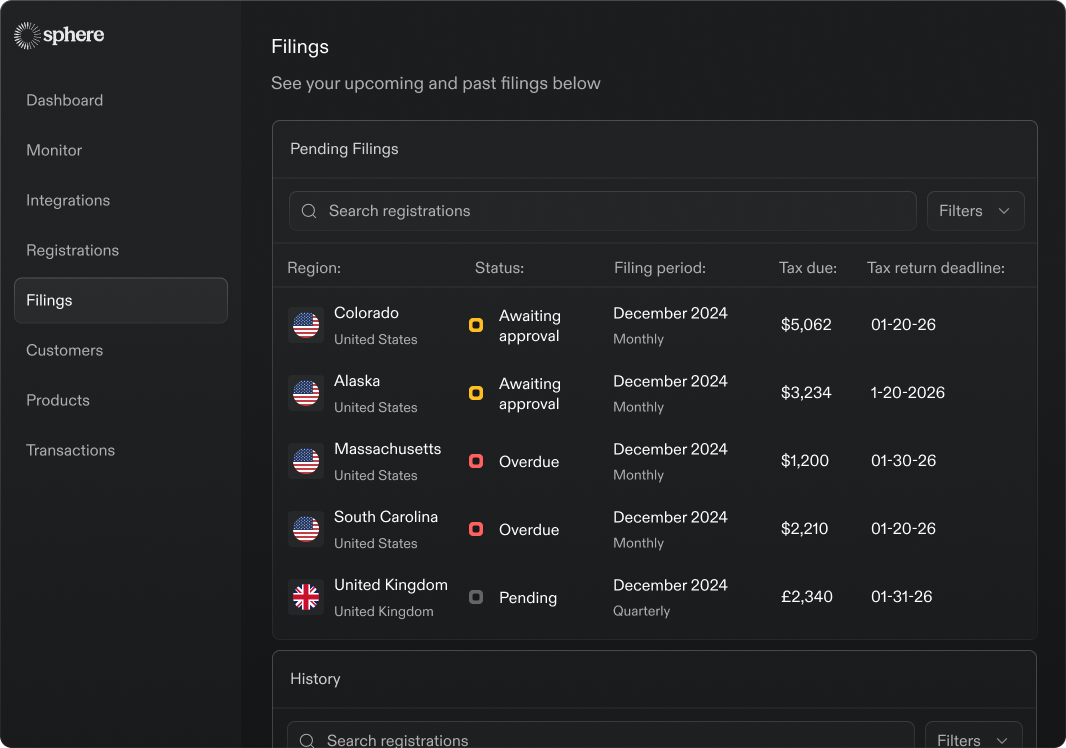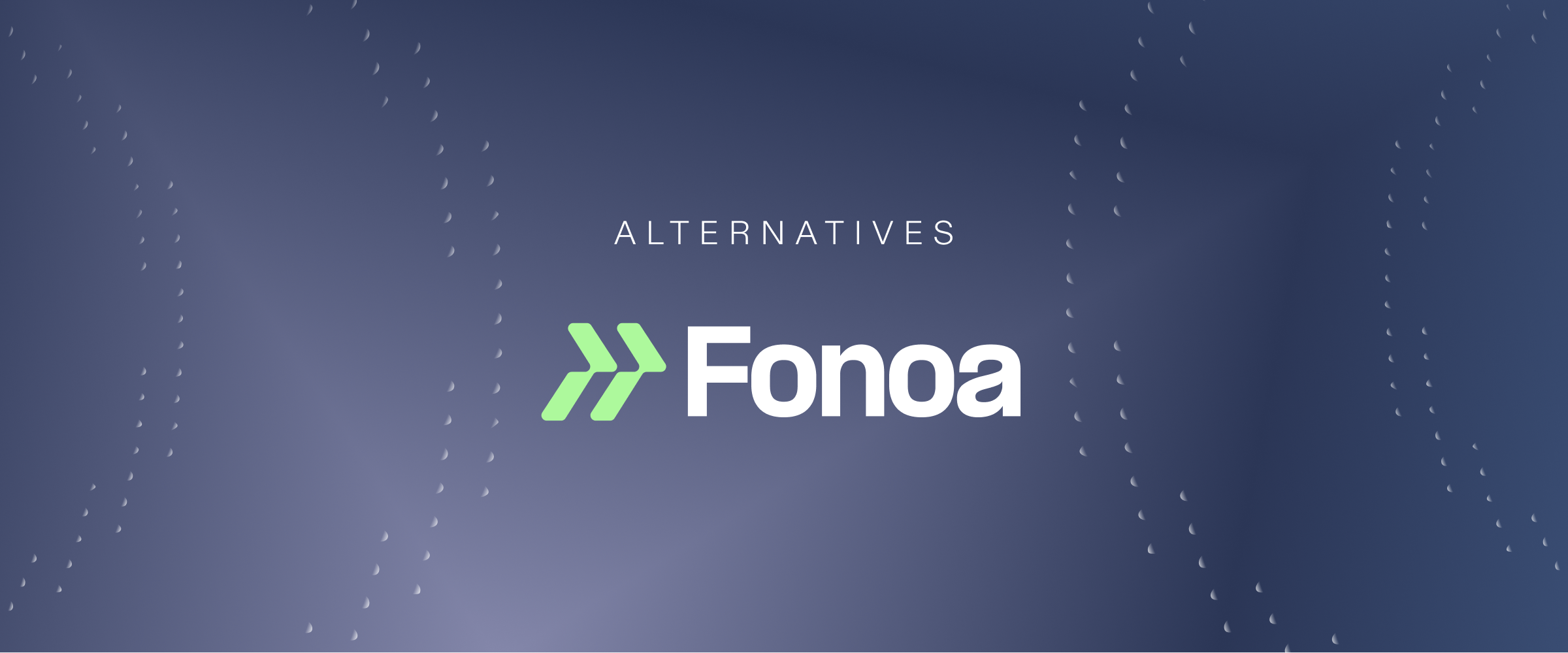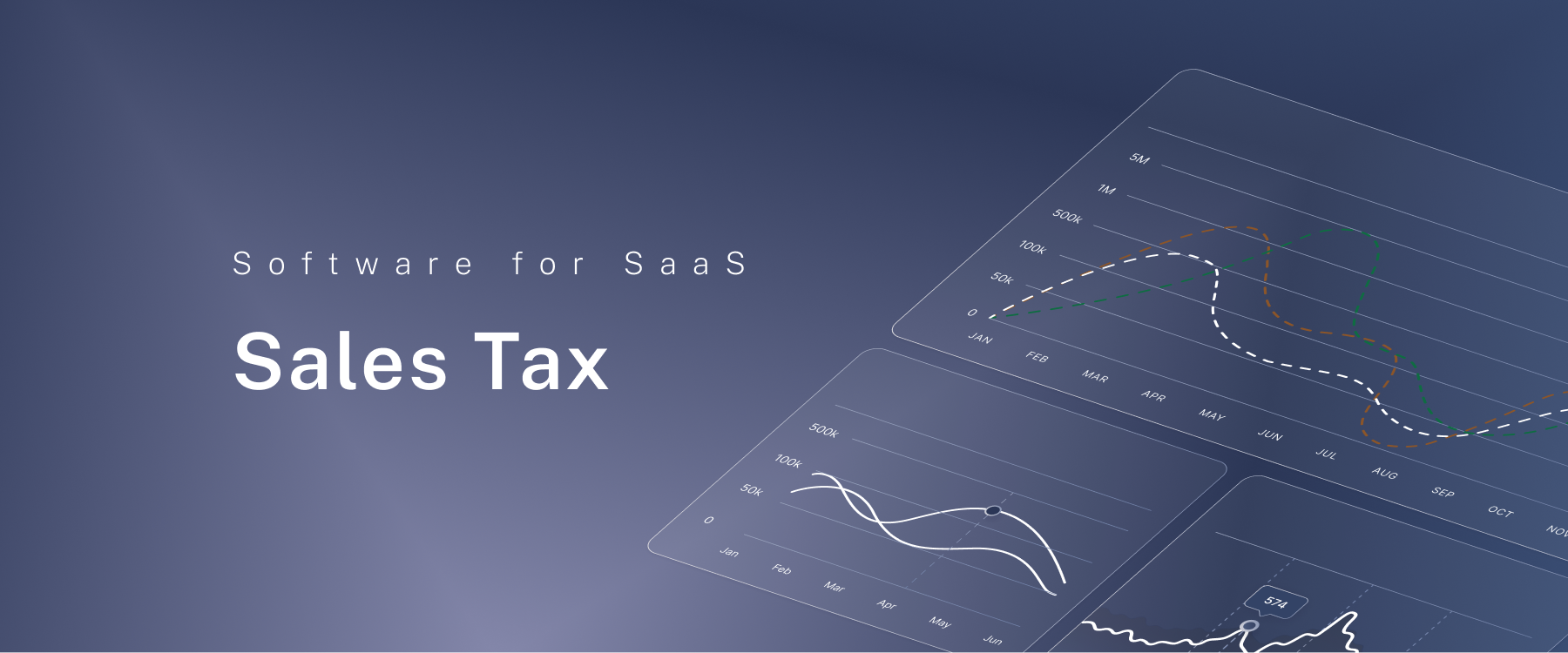.png)
Chicago's combined sales tax rate is 10.25%, consisting of Illinois state sales tax (6.25%), Cook County tax (1.75%), Chicago city tax (1.25%), and Regional Transportation Authority tax (1%).
However, several special rates apply: food and drugs are taxed at just 1% at the state level, while SaaS and cloud software face an 11% Personal Property Lease Transaction Tax (PPLTT), and streaming services, digital audiovisual works, audiobooks, and digital games are subject to a 10.25% Amusement Tax. These rates make Chicago one of the highest-taxed cities in the United States for sales transactions.
How Chicago Sales Tax Works
Illinois is a “home rule” state, which means that municipalities within the state with a population of more than 25,000 can impose their own local sales tax rates and rules. This gives cities like Chicago the flexibility to levy additional taxes beyond Illinois’ state-level 6.25% sales tax rate in order to raise more money for the city’s coffers.
The standard sales tax rate in Chicago is the state + local rates of 10.25%. But then Chicago also taxes some software transactions at a separate rate under the Personal Property Lease Transaction Tax (PPLTT). This means SaaS subscriptions, cloud computing, and other digital products (that are considered “leased” rather than purchased outright) are taxed at 11% rather than 10.25% in Chicago. (Note that the state of Illinois considers SaaS a non-taxable service.)
Chicago also has an “Amusement Tax,” and it can be tricky to distinguish between what is taxable under that versus what is taxable under the PPLTT. The Amusement Tax covers streaming services like Netflix and Spotify, online gaming, virtual events, and digital downloads of music or movies. While considered a different tax, the rate here is also the standard combined 10.25% Chicago tax rate, and not the 11% PPLTT rate reserved for software transactions.
Cook County, City, and RTA Add-Ons
To break it down, retailers selling tangible goods like clothing or activities like dining in restaurants to a consumer in Chicago would charge Chicago's combined sales tax rate of 10.25%.
But when selling amusements like Netflix or online gaming, they’d charge an Amusement Tax that is the same 10.25%. And when selling cloud computing or SaaS services, they’d be required to charge the 11% PPLTT.
SaaS and Digital Goods in Chicago
Is SaaS Taxable in Chicago?
Yes, SaaS is taxable at the 11% PPLTT rate. SaaS-related services are taxable if bundled or integrated with SaaS product updates. If standalone, like training or consulting, they are considered a service and are not taxable.
Digital Goods & Amusements
Streaming services like video, audio or games, or virtual events, are considered digital amusements and are taxed at the 10.25% Amusement Tax rate.
In person-amusements, however, such as concerts, living sporting events, and trips to the theater are only taxed at 9%.
Nexus Rules — When Do You Need to Collect?
Whether your business needs to collect sales tax in Chicago depends on whether you have sales tax nexus in Illinois.
Physical Nexus
If your business is located in or has business activity such as employees, contractors, or inventory in the state, then you’re required to register for and collect Illinois sales tax. This includes complying with special sales tax rates in home rule cities such as Chicago.
Economic Nexus in Illinois
Even if your business doesn’t have a physical presence in Illinois, your out-of-state business will still be required to collect sales tax if you meet the state’s economic nexus requirements.
If you make over $100,000 in sales OR 200 or more transactions in the prior year, then your business is considered to have economic nexus in the state and you are required to collect sales tax from buyers in the state.
Chicago Nexus for PPLTT & Amusements
If your business has either physical presence or meets the revenue requirements in Chicago, then you’re required to collect the Chicago PPLTT and Amusements taxes.
The revenue requirement is $100,000 in revenue in the city. Unlike with economic nexus the state of Illinois, there is no transaction threshold for Chicago.
Note that this threshold counts both taxable and non-taxable sales, meaning that if even a portion of your sales are things like non-taxable services, the revenue from those sales still counts toward the $100,000 threshold.
Registering for Sales Tax in Chicago
If you’re required to collect sales tax in Chicago, you’ll need to register with both the state’s and the city’s taxing authorities.
Illinois Registration
First, register with the Illinois Department of Revenue online via the MyTax Illinois portal. If you don’t already have one, you’ll also be required to obtain an Illinois Business Tax (IBT) number.
Chicago Registration
.png)
If your business is also required to register in Chicago, the next step is to use your IBT number to register for a Personal Property Lease Transaction Tax (PPLTT) through the city’s Chicago Business Direct website using Form 7550.
If your business is also required to apply for Chicago’s Amusement Tax, use Form 7510.
Need help registering? Unsure if your business has reached the $100,000 Chicago threshold? That’s where sales tax automation like Sphere comes in. Sphere monitors your sales thresholds and will warn you when you’re reaching or have reached a tipping point.
From there, Sphere will handle your sales tax registration–with both the state and the city of Chicago–and ensure you remain compliant with all sales tax laws. Sphere even files and remits your sales tax for you.
Filing and Remitting Chicago Sales Tax
When you register with the state of Illinois, you’ll be assigned to file monthly or quarterly, filing more frequently the greater your sales volume. Filing your Illinois sales tax takes place through MyTax Illinois.
Chicago city sales tax filings are due monthly on the 15th of the month after the taxable period. They are filed via Chicago Business Direct.
Payments are due at the same time as the filing and can be remitted by card or ACH transfer.
Be sure to pay on time. Both the state of Illinois and the city of Chicago implement penalties and interest.
- Penalty for filing an Illinois return late – $100 penalty
- Penalty for paying Illinois sales tax due late – Payments 1-30 days late are subject to a 2% penalty. Payments 31 or more days late are subject to a 10% penalty
- Penalty for filing Chicago return late – The greater of 1% of the total tax due (up to $5,000) or 5% of the amount payable on the return
- Penalty for paying Chicago sales tax due late – Late payment penalty of 5% plus interest of 12% per annum starting the day following the due date
Exemptions and Special Tax Cases
As with most US states, Illinois (and Chicago) have some tax exemptions and special circumstances.
In Illinois, drugs and qualifying food (such as grocery items) are taxed at a reduced rate of 1%. Some one-time-purchase digital downloads are also tax-exempt. However, other tangible goods like clothing, or food served at restaurants are considered fully taxable.
In Chicago, nonprofits are exempt from the amusement tax. SaaS services such as training and implementation may be considered a non-taxable service unless the price is bundled with the SaaS product.
Compliance Tips for SaaS Companies
SaaS businesses selling to Chicago customers face multiple overlapping tax obligations that require careful attention. You'll need to track both Illinois state economic nexus thresholds and Chicago's local tax requirements, and keep in mind that these operate independently with different rules and filing schedules.
Understanding of the rules and detailed recordkeeping are critical for dealing with sales tax in home rule states like Illinois. Be sure to document all transactions, keep track of how much sales tax you collected, and which tax you collected (ex: the PPLTT, the Chicago Amusement tax or the Illinois 1% sales tax on groceries).
Also note that Chicago is notorious for rate changes and frequently updating its sales tax rules and laws. You’ll want to monitor for updates from both the Illinois Department of Revenue and the Chicago Department of Finance and ensure you’re still up to date and following the rules.
Given the complexity of dealing with Chicago (and Illinois) sales tax, it’s recommended to automate your sales tax compliance with solutions like Sphere.
How Sphere Helps

Sphere simplifies the sales tax landscape in both Chicago and Illinois by monitoring your nexus exposure across both the city and the entire state. The solution tracks not only when you’re triggered nexus in Illinois, but when your business activities are subject to new taxes such as Chicago’s Amusement Tax or the PPLTT.
Sphere warns you when you’re approaching sales tax thresholds and even registers you when the time comes. Because knowing when to register with both the state of Illinois and the city of Chicago can be tricky, Sphere handles that, too.
Once registered, Sphere helps you charge the right taxes at the right amounts, and files and remits your sales tax by the due date to both the Illinois Department of Revenue and the Chicago Department of Finance.
If you make sales to exempt customers, such as resellers or nonprofits, Sphere also helps you track and manage sales tax exemption certificates so you remain legal and compliant should you ever face an audit.
Chicago Sales Tax Is Complex, But Compliance Doesn’t Have To Be
Chicago’s sales tax landscape is the perfect encapsulation of the complexity of the US sales tax system. Home rule cities like Chicago can implement dramatically different sales tax obligations from state-level rules. While Illinois exempts SaaS from its traditional sales tax, it’s still taxable in Chicago at 11% due to the PPLTT, while streaming services like Netflix are taxable at the city’s 10.25% Amusement Tax rate.
The complexity extends beyond just charging the right rate. Businesses are required to deal with two different sales tax systems–the state of Illinois and the city of Chicago–and collect, file, and pay correctly within each system.
Sales tax automation like Sphere cuts through the complexity by monitoring your sales activity against both sets of thresholds, calculating the correct tax for each transaction, and handling registration, filing sales tax returns, and remitting payment across jurisdictions.









.png)






